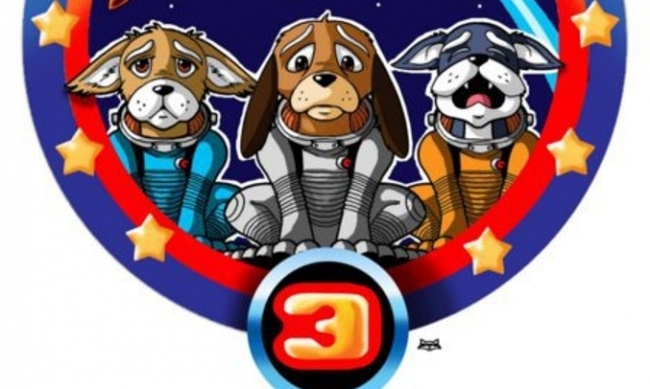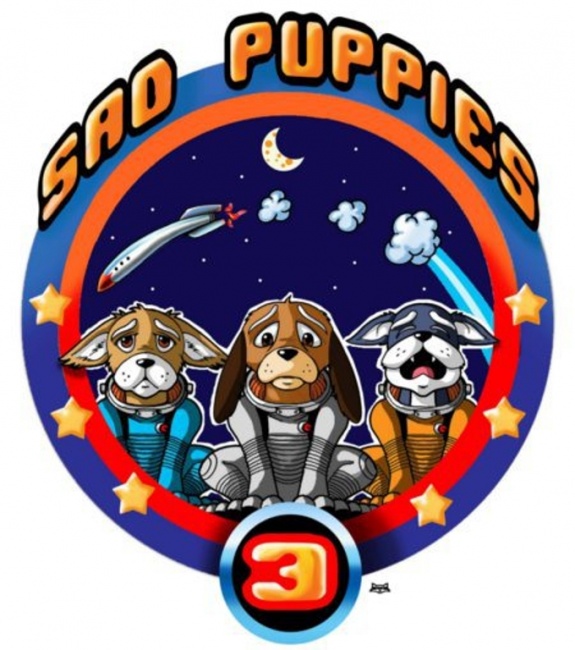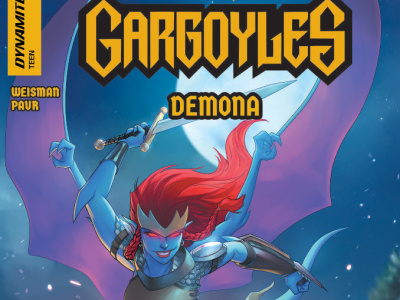Over the weekend, another corner of geek fandom became embroiled in political controversy when the 2015 Hugo Awards nominees for the best science fiction work were announced. It’s yet another example of how social and ideological divisions from the wider world are making their way into fan culture, accelerated by a media environment that profits from tribal warfare.
Conflict on a galactic scale. The Hugo Awards, named after pioneering SF publisher Hugo Gernsback, are a venerable and prestigious tradition in science fiction fandom. Winners are identified on the book covers to help distinguish them from other titles that glut the market, and top stories are frequently anthologized. Because the Hugos are voted on by fans – specifically attendees and supporters of the annual Worldcon science fiction convention – it is possible, though until recently socially discouraged, to mount public campaigns in support of particular works or authors.
Through a series of events best captured in this post at iO9, the voting process for the awards became politicized along depressingly familiar lines. A group of fan activists trying to encourage recognition of a more diverse range of talent within the field, reflecting the current demographics of SF readers and writers, launched a successful campaign last year to promote works by young authors, women and people of color.
Their success led to an outcry and an organized backlash by another faction calling themselves "Sad Puppies," who nominated and supported an entire slate of candidates in every category to reassert what they saw as the traditional values of SF fandom. Based on the evidence of this year’s finalists, they succeeded beyond anyone’s expectations by dominating many of the categories, and now the broader electorate is faced with having to support one of the Sad Puppy authors or voting instead for "No Award."
On its face, this is an intramural dispute within the SF community. The tactics of both sides in campaigning for their favorites are within the rules of the Hugo Awards. Fans are entitled to their point of view about what they want their fan-voted industry award winners to look like. Tastes differ as to what constitutes the "best" work in any particular area, and anyone who feels that, say, Carter Reid’s Zombie Nation book is a more worthy recipient of the award for Best Graphic Story than Saga, Ms. Marvel or Sex Criminals has a vote that counts just as much as anyone else’s.
Fan culture sewage leaks. The problems arise when the conflict spreads beyond the cloistered halls of fandom and attaches itself to more general ideological disputes that are roiling American culture at large. This is pretty easy to do. Questions about the role of identity (gender, ethnicity, religiosity, etc.) are everywhere these days, challenging the implicit assumption that straight, white, religiously-observant maleness constitutes a social norm against which everyone else is considered “diverse.”
Experience shows that diversity is something that the majority culture can tolerate and indulge up until the moment where it becomes genuinely threatening to the privileges of the existing power structure. At that point, conflict breaks into the open and can become exceptionally divisive and ugly.
Of course, the backlash movement can’t legitimately embrace its actual objectives: the maintenance of in-group power and privilege. Instead it justifies itself according to broader principles such as the defense of traditional standards, ethics and "objective" considerations of quality divorced from the grubby political goals of opponents. Unfortunately for the high-minded ideological ring-leaders, plenty of the rank and file followers don’t get that particular memo and see the whole uprising as an opportunity to give voice to every manner of pent-up grievance, resentment and personal hang-up that they can lay at the feet of "social justice warriors" or whoever is the enemy du jour. Considering that we are talking about some of the less well-adjusted elements of fan culture, intimidation, social media bullying, and rape and death threats seem to be the inevitable outcome of this process.
We’ve seen this dynamic play out in the GamerGate uprising that has essentially discredited gamer culture in the eyes of many. The current Hugo flap has not descended to quite that depth, but that’s likely because the SF community is much smaller and more insular than video gaming.
Let’s you and him fight! The greatest damage comes when media outlets spot a skirmish taking place in a subculture they already consider kind of weird (though photogenic) anyway. The identity politics fights inside fandom resemble those taking place elsewhere in society, and as every media outlet knows, conflict sells.
Old establishment media would not ordinarily deign to take notice of these kinds of fights, but we’re in an environment now where lots of new outlets are fighting for eyeballs. Nerd fights make great copy, especially when you can get non-nerds riled up by posing the intramural fandom fight in the context of Red versus Blue tribalism.
The online empire of the late Andrew Breitbart on the right, and partisan clickbait operations like the once-respectable Salon on the left, are two of the biggest traffickers in these kinds of stories. A lot of folks writing for these publications came out of the broader nerd culture of the 90s and 00s, giving them enough knowledge to write with some authority, so you get pieces like this one at Breitbart by Allum Bokhari that is rather more detailed than you’d expect from a non-fan publication.
The net effect of this, as observed by commentator Ezra Klein, is the politicization of just about everything, dragging a lot of randomly hostile and belligerent people into conflicts that don’t really concern them, but in whose outcome they have been persuaded they have a stake. Media outlets profit, but fan culture, which at its best unites people from all demographics across the political spectrum in their enthusiasm for creative works and community, is the victim.
--Rob Salkowitz (@robsalk) is the author of Comic-Con and the Business of Pop Culture.
The opinions expressed in this column are solely those of the writer, and do not necessarily reflect the views of the editorial staff of ICv2.com.

Column by Rob Salkowitz
Posted by Rob Salkowitz on April 6, 2015 @ 2:48 pm CT
MORE COMICS
Ten Speed Graphic Fall 2025 Catalog
July 11, 2025
Ten Speed Graphic has released its Fall 2025 catalog.
From Dynamite Entertainment
July 11, 2025
Check out the preview for Gargoyles: Demona #1, published by Dynamite Entertainment.
MORE COLUMNS
Column by Scott Thorne
July 7, 2025
This week, columnist Scott Thorne looks at the effect of Diamond Comic Distributors' bankruptcy on the games industry.
Column by Rob Salkowitz
June 30, 2025
Columnist Rob Salkowitz talks to a mid-sized publisher who told him we are at "DEFCON 2, if not DEFCON 1."








